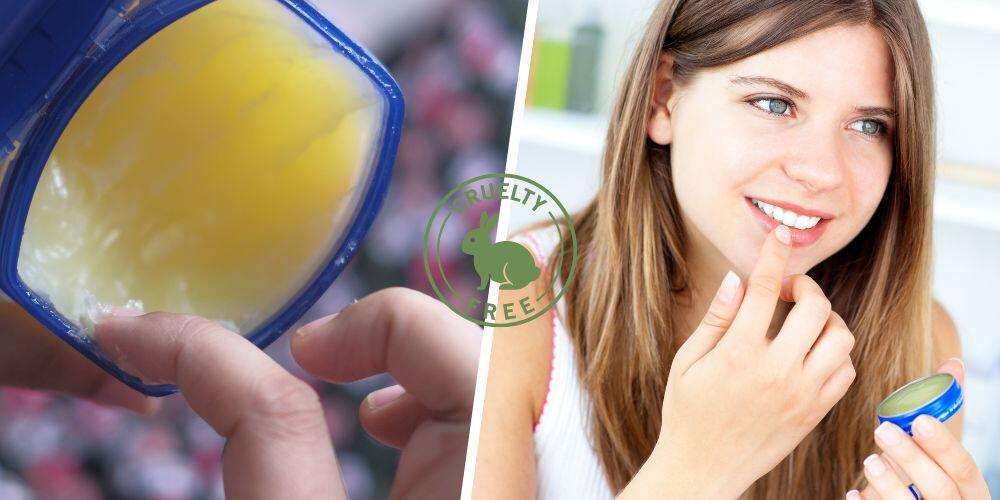For over 150 years, Vaseline has been a household name. Known for its iconic petroleum jelly, the brand is used worldwide for dry skin, healing, and beauty routines. But conscious consumers are asking an important question: is Vaseline cruelty free?
The short answer: No, Vaseline is not considered cruelty free. While the brand itself doesn’t test products on animals, its parent company and regulatory compliance in some countries prevent it from being fully cruelty free.
Let’s dive deeper into why Vaseline doesn’t meet the cruelty-free standard, what that means, and what alternatives exist.
What Does “Cruelty Free” Mean?
Before analyzing Vaseline, it’s important to define the term.
A brand is considered cruelty free if it:
- Does not test finished products or ingredients on animals.
- Does not commission third parties to test on animals.
- Does not sell in countries where animal testing is required by law (e.g., China, unless certain exemptions apply).
- Is certified by organizations like Leaping Bunny or PETA.
This strict standard ensures that no part of the production or distribution chain involves animal testing.
Vaseline’s Animal Testing Policy
According to public statements and third-party watchdogs:
- Vaseline itself claims not to conduct animal testing unless required by law.
- Because the brand sells products in countries where animal testing is still mandatory for cosmetics, it cannot be classified as cruelty free.
- Vaseline does not have Leaping Bunny or PETA’s cruelty-free certification.
This means Vaseline is not meeting the criteria that cruelty-conscious consumers expect.
Is Vaseline Owned by a Cruelty-Free Company?
Vaseline is owned by Unilever, one of the world’s largest consumer goods companies.
Unilever has made strides in sustainability and alternatives to animal testing, but:
- It still allows animal testing when required by law.
- Many of its brands sell in mainland China, which has historically required animal testing for imported cosmetics.
- Some Unilever brands (like Dove) have earned cruelty-free certifications, but Vaseline has not.
So while Unilever is improving, Vaseline does not currently hold cruelty-free status.
Does Vaseline Sell in China?
Yes, Vaseline products are widely available in China.
Until recently, China required pre-market animal testing for imported cosmetics. In 2021, some rules were relaxed, but certain categories may still be subject to testing.
By choosing to remain in these markets, Vaseline indirectly supports animal testing requirements—disqualifying it from being cruelty free.
Is Vaseline Vegan?
Another common question: Is Vaseline vegan?
- Vaseline Petroleum Jelly is made from petroleum byproducts, not animal ingredients.
- However, since the brand is not cruelty free, it is not considered vegan-friendly by ethical standards.
- Some specialty Vaseline products may contain additional ingredients like glycerin (which can be animal- or plant-derived).
So while technically free of animal ingredients, Vaseline cannot be marketed as vegan.
Certifications and Cruelty-Free Watchdogs
To be recognized as cruelty free, a brand must carry third-party certifications.
- Leaping Bunny (gold standard, strictest certification).
- PETA’s Beauty Without Bunnies program.
- Choose Cruelty Free (Australia-based).
Vaseline does not appear on any of these lists, confirming it is not certified cruelty free.
Why Consumers Care About Cruelty-Free Skincare
The shift toward ethical consumerism has made cruelty-free products more popular. Shoppers want to:
- Avoid supporting animal testing.
- Align purchases with personal values.
- Encourage companies to adopt humane policies.
In today’s market, brands seen as lagging behind on ethics often lose consumer trust.
Cruelty-Free Alternatives to Vaseline
If you love the benefits of Vaseline but want cruelty-free options, here are some great alternatives:
Alba Botanica Un-Petroleum Jelly
- 100% vegetarian and cruelty free.
- Works like Vaseline but plant-based.
Earth Mama Organic Nipple Butter
- Certified cruelty free and USDA organic.
- Safe for sensitive skin.
SheaMoisture 100% Raw Shea Butter
- Rich, natural moisturizer.
- Certified cruelty free by PETA.
Doctor Rogers Restore Healing Balm
- Plant-based, dermatologist-developed.
- Cruelty free and vegan.
Cocoon Organics Lip and Skin Balm
- Made with coconut oil and plant waxes.
- Certified cruelty free.
These alternatives deliver the same healing and moisturizing power without compromising ethics.
Consumer Awareness and Brand Responsibility
As awareness grows, consumers expect transparency. Brands like Vaseline face pressure to:
- End sales in animal-testing markets.
- Seek cruelty-free certification.
- Develop plant-based, vegan alternatives.
Some companies, like Dove (also owned by Unilever), have achieved cruelty-free recognition—showing that it is possible for legacy brands to evolve.
Global Regulations and Cruelty-Free Standards
- European Union: Complete ban on cosmetic animal testing since 2013.
- United States: No nationwide ban, but several states (California, Nevada, Illinois, etc.) prohibit sales of animal-tested cosmetics.
- China: Relaxed some rules, but still requires animal testing for certain products.
Vaseline’s compliance with markets that mandate testing prevents it from being universally cruelty free.
Conclusion
So, is Vaseline cruelty free?
- No. While Vaseline does not directly test on animals, it allows testing where required by law, sells in markets with mandatory testing, and lacks third-party cruelty-free certification.
For consumers committed to cruelty-free living, this means Vaseline is not an ethical choice. Fortunately, there are plenty of plant-based, cruelty-free alternatives that offer the same benefits without compromise.
As consumer demand grows, it’s possible Vaseline may follow in the footsteps of brands like Dove and pursue cruelty-free certification in the future. Until then, ethical shoppers have better options.
FAQs
1. Is Vaseline cruelty free in 2025?
No. Vaseline allows animal testing where required by law and is not certified cruelty free.
2. Does Vaseline test on animals directly?
Not directly, but testing may be done on their behalf to comply with foreign regulations.
3. Is Vaseline vegan?
Its petroleum jelly is technically free of animal ingredients, but the lack of cruelty-free certification means it is not considered vegan-friendly.
4. Who owns Vaseline?
Vaseline is owned by Unilever, a global company with both cruelty-free and non-cruelty-free brands.
5. What are cruelty-free alternatives to Vaseline?
Alba Botanica, Earth Mama, SheaMoisture, Doctor Rogers Restore, and Cocoon Organics all make ethical alternatives.
Also read: Smart Motor Problems: Causes, Solutions, and Maintenance Tips



